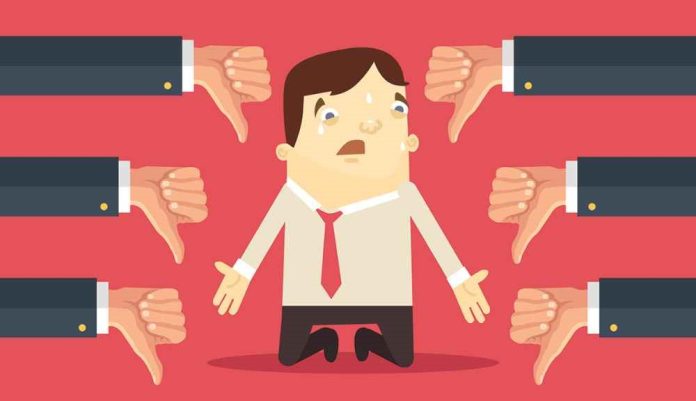
Negative criticism is inevitable in any creative field, and musicians are no exception. In an age of social media, online reviews, and real-time feedback, handling public backlash has become an essential skill for artists. While criticism can be tough, it’s how musicians respond to it that can either positively or negatively affect their career and mental health. Below are practical steps to navigate and manage negative criticism without causing long-term damage.
1. Assess the Source of the Criticism
Not all criticism is equal, so it’s important to consider the source. Criticism from a seasoned music critic or industry professional often differs in intent and value from a negative comment on social media. Professionals typically provide constructive feedback, which can help musicians grow, while online trolls may simply be looking to provoke a reaction.
Action: Determine whether the criticism is coming from a reliable, experienced source or from someone whose intent is simply to tear you down. Respond only to criticism that is constructive and worth engaging with.
2. Pause Before Reacting
It’s natural to feel hurt or defensive after receiving harsh feedback, but reacting immediately in the heat of the moment can escalate the situation. Emotional responses can often lead to more backlash and may hurt your reputation in the long run.
Action: Take a break before responding to any criticism, allowing yourself time to cool down and reflect on whether the feedback holds any merit.
3. Separate Personal Identity from Your Art
It’s easy to take negative criticism personally, especially for musicians who pour their heart into their work. However, distinguishing your self-worth from your music can help you manage feedback without internalizing it too deeply.
Action: Remind yourself that criticism of your music is not a reflection of your worth as a person. View your music as a product that can evolve, rather than an extension of your identity.
4. Acknowledge Constructive Criticism
Constructive feedback offers valuable insights, even when it’s hard to hear. Critics may point out areas of improvement that can help you refine your craft and grow as an artist.
Action: When faced with constructive criticism, thank the critic for their input, even if you don’t fully agree. This shows professionalism and maturity while giving you room to evaluate the feedback later.
Example Response: “Thank you for the feedback. I’ll consider it as I continue working on my music.”
5. Engage Constructively with Fans and Critics
Engaging constructively can help diffuse criticism while showing that you are approachable and willing to learn. A tactful response can turn a negative situation into an opportunity to build rapport with your audience.
Action: If a critic or fan offers specific concerns, you might respond with openness. For instance, “I appreciate your thoughts on the track. I’ll keep your perspective in mind for future projects.” This type of response avoids escalation while showing that you care about feedback.
6. Don’t Feed the Trolls
It’s essential to recognize when someone is trying to provoke you rather than provide meaningful criticism. Engaging with trolls can lead to further negativity and affect your public image.
Action: Ignore trolls and block users who are persistently negative without constructive intent. Engaging with them only fuels the fire.
7. Take Control of Your Narrative
When criticism begins to spiral, whether on social media or in public forums, it can feel overwhelming. To regain control, musicians should use their platforms to address their side of the story.
Action: Share your perspective with authenticity on your social media or in interviews. Address the criticism head-on, but avoid being defensive or overly apologetic. Focus on your personal growth and future creative endeavors.
8. Lean on Your Support Network
Facing public backlash can be isolating and emotionally draining. Surrounding yourself with trusted friends, family, or a team who can provide objective feedback and emotional support is crucial during these times.
Action: Talk to people you trust to get their perspective on the situation. They can offer advice on how to respond, or they might remind you to take the criticism in stride.
9. Use Criticism as a Growth Tool
Negative feedback doesn’t always feel good, but it can be a powerful tool for growth if handled correctly. Rather than seeing it as a setback, approach it as an opportunity for development.
Action: Ask yourself what you can learn from the criticism. If there are areas where improvement is needed, use the feedback to adjust your work moving forward.
10. Prioritize Mental Health
Constantly dealing with public scrutiny can take a toll on your mental health. Musicians should be mindful of their emotional well-being and take proactive steps to care for themselves.
Action: Set boundaries when engaging with criticism and take breaks from social media or public forums when necessary. Consider speaking to a therapist or counselor who can offer strategies for managing stress and public pressure.
Conclusion: Navigating Criticism with Grace
Music Industry Weekly understands that musicians, like all public figures, will inevitably face criticism. How they choose to handle it can make a significant difference in their career trajectory and emotional health. By approaching criticism with patience, perspective, and professionalism, musicians can navigate public backlash without damaging their reputation or well-being. Ultimately, learning to manage criticism effectively can lead to personal and creative growth, while building resilience in an ever-demanding industry.